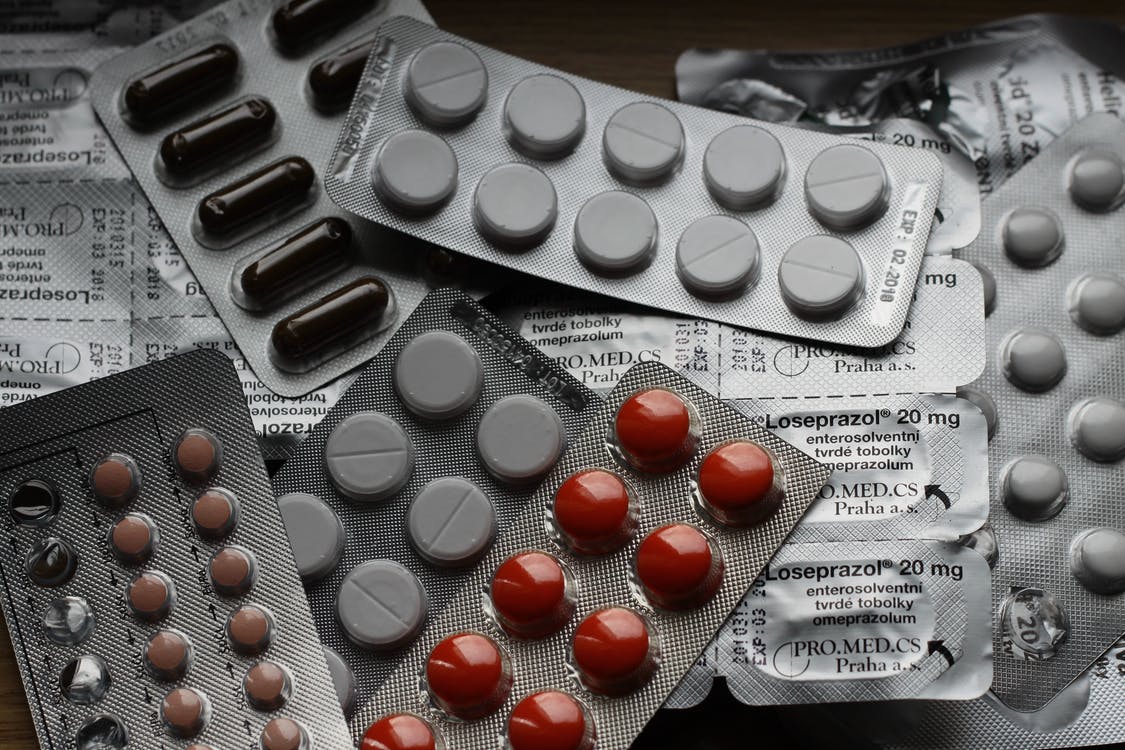Creating a Personalized Addiction Treatment Plan
When planning for sobriety, having a customized treatment plan for substance use disorder can be the difference between successful long-term recovery and multiple failed relapses. People experience addiction differently, and studies consistently reveal the benefits of a personalized recovery plan as they relate to the individual, rather than a one-size-fits-all approach. Various factors contribute to the development of substance use disorder treatment plans, including the type of types of substances used, the duration of the addiction, co-occurring physical and mental health conditions, personal life circumstances, and underlying psychological characteristics. Buena Vista’s compassionate, experienced medical and clinical professionals craft treatment plans to meet each person’s unique drug and alcohol recovery needs.
What is a Personalized Addiction Treatment Plan?
Unlike a generalized, one-size-fits-all treatment plan for substance use disorder, a personalized addiction treatment plan is a customized way of addressing an someone’s addiction by considering their unique physical, psychological, social, and environmental factors influencing their addiction and recovery needs.
What to Expect in Personalized Treatment
- Comprehensive Assessment
- Medical history, mental health, extent and impact of substance use
- Screening for co-occurring disorders (e.g., depression, anxiety, PTSD)
- Understanding personal goals and preferences
- Detoxification (if necessary)
- Supervised medical detox to safely manage withdrawal symptoms, including medications to ease the process
- Therapeutic Interventions
- Evidence-based therapies such as Cognitive Behavioral Therapy (CBT), Acceptance and Commitment Therapy (ACT), or Motivational Interviewing (MI)
- Individual counseling to explore behavioral patterns contributing to substance use and learning coping strategies
- Group therapy for psychoeducation, peer support, and shared experiences
- Medication-Assisted Treatment (MAT)
- For certain addictions (e.g., opioids or alcohol), medication-assisted treatment using buprenorphine, methadone, or suboxone may be part of the plan
- Holistic and Alternative Therapies
- Activities and experiential therapies like yoga, meditation, and art therapy to address emotional and spiritual well-being
- Family Involvement
- Family therapy or education to repair relationships and build a supportive personal environment
- Recovery Maintenance Planning
- Identifying challenges and developing strategies to support ongoing recovery and prevent relapse, including tools like stress management, mindfulness, and social skills training
- Aftercare and Support
- Ongoing outpatient therapy or support groups (e.g., 12-Step Program, SMART Recovery)
- Guidance with selecting housing, employment, or education
- Building a long-term recovery network including natural supports, alumni groups, and peer support resources
- Cultural and Personal Considerations
- Integrating cultural, spiritual, or religious beliefs into the treatment if applicable
- Accounting for individual lifestyle preferences and obligations
Truly meaningful recovery plans for addiction created at health and recovery centers like Buena Vista empower people struggling with addiction to determine what their personal recovery looks like. The treatment team uses this customized plan to help each person regain control of their lives by providing them with the tools, support, and resources tailored to their unique situation and goals.
How Personalized Plans Aid in Your Recovery
Personalized treatment plans are the ideal method for an addiction recovery journey because they increase the likelihood of long-term success while helping a person build the skills they need to maintain it. Here are some of the ways a personalized treatment plan works to benefit the individual person more than a more generalized approach:
1. Addresses a Person’s Unique Needs
Substance use disorders impact people differently based on various factors such as genetics, life experiences, social environments, and more. A personalized recovery plan ensures the treatment is targeting the person’s specific challenges by considering their unique circumstances.
2. Improves Engagement and Motivation
Treatment that is tailored to them specifically and aligns with their values and goals fosters trust and participation, making them feel more involved and committed to a plan that reflects their personal journey, making them more likely to adhere to it.
3, Provides a Holistic Approach
Addiction affects multiple areas of life—physical health, mental well-being, relationships, and finances. Personalized plans integrate medical care, therapy, and social support to address all aspects of recovery, creating a holistic solution to the root of the issue.
4. Considers Co-Occurring Disorders
Many people struggling with addiction often also experience mental health conditions like anxiety, depression, or PTSD. Personalized plans are designed to treat both addiction and these underlying issues simultaneously, improving outcomes for both.
5. Gives Room for Iteration
Recovery from addiction is not linear; people may face setbacks or new challenges as they progress. Personalized plans are flexible and can be adjusted to meet changing needs, ensuring continued support and relevance.
6. Recovery Maintenance Planning
Also referred to as Relapse Prevention Planning, this part of the treatment considers the unique challenges and stressors someone may face while achieving and maintaining sobriety. A relapse prevention plan identifies these and offers tailored coping strategies to help manage them to support long-term well-being.
7. Leverages Strengths and Resources
Each person has unique strengths, skills, and social resources. Personalized treatment plans focus on building confidence and utilizing these strengths to empower people in their recovery journey.
8. Respects Cultural and Social Contexts
Treatment plans that consider cultural, religious, and social backgrounds are more relatable and effective. Incorporating family dynamics, work-life balance, religious beliefs, and personal background creates a sense of relevance and acceptance.
9. Encourages Long-Term Success
Addiction recovery is a lifelong process. Personalized plans often include aftercare, recovery maintenance strategies, and ongoing support tailored to the individual, promoting long-term success.
By recognizing that no two individuals experience addiction in the same way, personalized addiction treatment plans ensure that care is specific, meaningful, effective, and deeply aligned with a person’s personal goals, values, and lifestyle.
How Buena Vista Creates Personalized Treatment Plans
Holistic Approach to Recovery
A holistic approach to addiction recovery focuses on treating each person as a whole—addressing their physical, mental, emotional, social, and spiritual well-being. It recognizes that addiction affects every aspect of a person’s life and that recovery requires comprehensive and integrative strategies to promote healing and balance.
Diverse Treatment Programs
Buena Vista Health and Recovery Centers provide comprehensive support options through its Continuum of Care. Recovery support and treatment options include medically-assisted alcohol and drug detoxification, inpatient rehab, outpatient, intensive outpatient (IoP), and virtual IoP (Virtual IoP).
Focus on Long-Term Success
Buena Vista focuses on long-term success and sustained recovery at the onset of treatment. During the development of the initial personalized treatment plan, our team of compassionate professionals will help you discover your individual strengths, needs, abilities, preferences, and goals. We will help you start planning for your next steps and long-term recovery from a holistic approach, including continued addiction treatment, informal and formal support, and assisting with any integrated care needs.
Team-Based Collaboration
Buena Vista’s team of experienced doctors, nurses, clinicians, and behavior health therapists work together to craft a personalized plan to meet each person’s recovery needs, goals, and aspirations.
Community and Support Integration
Our team understands that sustained recovery extends beyond formal treatment—it also requires careful planning for reintegration into the community. We support this crucial aspect of recovery through ongoing services. We also encourage you to stay connected with our recovery community by joining our alumni program. Through the Alumni program, you’ll connect with others who understand your challenges, milestones, and accomplishments. Our alumni connect both virtually and in person, sharing both successes and setbacks, and considering each other a vital part of their ongoing recovery. Research shows that people who build a strong network of peer-based support are more likely to maintain recovery than those who do not.
How to Start Your Recovery Journey
Beginning your addiction treatment at Buena Vista Health and Recovery Centers means benefitting from the tailored treatment plans developed by our cross-disciplinary teams.
We offer personalized care while providing comprehensive support, integrated evidence-based therapies, and recovery maintenance strategies. With adaptable plans that evolve with an individual’s progress, Buena Vista Health and Recovery Centers ensure ongoing support, making them an ideal choice for lasting recovery.
You can contact us at (800) 922-0095, or visit any of our Arizona drug and alcohol treatment centers to start your recovery journey today.
CHANDLER
3033 South Arizona Avenue
Chandler, Arizona 85248
TUCSON
5151 East Pima Road
Tucson, Arizona 85712
SCOTTSDALE
8171 E Indian Bend Rd
Scottsdale, AZ 85250
SOURCES
- https://pmc.ncbi.nlm.nih.gov/articles/PMC4476601/
- https://pmc.ncbi.nlm.nih.gov/articles/PMC4654192
- https://pmc.ncbi.nlm.nih.gov/articles/PMC8284918
- https://psychiatryonline.org/doi/10.1176/appi.ajp.2019.19121284
- https://www.psychologytoday.com/us/blog/harm-reduction-or-abstinence/202407/a-personalized-plan-is-key-to-overcoming-substance-use





